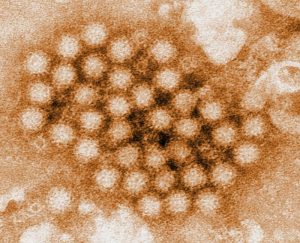An outbreak of a gastrointestinal illness has sickened scores of students, faculty and staff at Hampden-Sydney College in Virginia.

According to a health alert from the college’s Student Health Services, as of Wednesday afternoon, January 28, approximately 100 students have been treated either at Centra or the Hampden-Sydney Wellness Center. A few faculty and staff are also ill.
The Piedmont Health District (Virginia Department of Health) has determined, based on the nature of the symptoms and quick spread of the illness, that the outbreak of illness on campus should be treated as a norovirus.
Wednesday afternoon, the Commons had a thorough inspection by the Health Inspector, and no violations were found. Housekeeping will continue to clean and sanitize communal areas in residence halls throughout the coming weekend. On Thursday, RAs will have disinfectant available for students to clean and sanitize their personal living areas.
Norovirus is a highly contagious viral illness that often goes by other names, such as viral gastroenteritis, stomach flu, and food poisoning.
The symptoms include nausea, vomiting, diarrhea, and some stomach cramping. Sometimes people additionally have a low-grade fever, chills,headache, muscle aches, and a general sense of tiredness. The illness often begins suddenly, and the infected person may feel very sick. In most people, the illness is self-limiting with symptoms lasting for about 1 or 2 days. In general, children experience more vomiting than adults do.
Norovirus is spread person to person particularly in crowded, closed places. Norovirus is typically spread through contaminated food and water, touching surfaces or objects contaminated with norovirus and then putting your hand or fingers in your mouth and close contact with someone who is vomiting or has diarrhea.
Norovirus causes more than 20 million illnesses annually in the US, and it is the leading cause of gastroenteritis outbreaks in the United States.
For more infectious disease news and information, visit and “like” the Infectious Disease News Facebook page


One thought on “Probable norovirus sickens scores at Hampden-Sydney College”